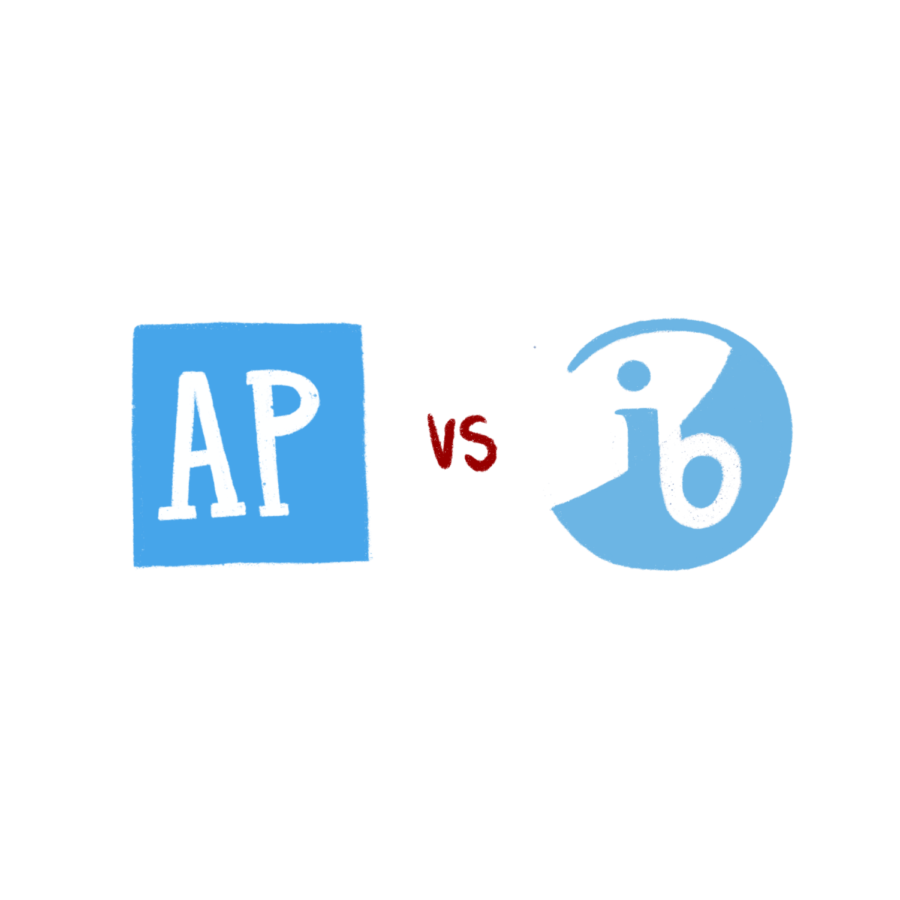AP, IB courses present their own unique benefits
Both AP and IB courses have their own benefits.
April 19, 2023
Richard Montgomery High School is host to a fairly unique student dilemma – AP or IB? Many students at RM choose the IB program as eighth graders, aware of its long run importance, yet scared of the impending workload. As they begin high school, many students are left questioning their decisions regarding whether or not they should’ve joined IB as freshman, and whether or not they should join as juniors. It seems like it all comes down to one question – is IB a better alternative to AP?
Students must first learn about the basic aspects of each program – what are AP and IB, anyway? International Baccalaureate (IB) students complete a holistic program that requires them to explore 6 subject groups containing studies in five core areas. Its U.S. presence, while significant (approximately 1000 schools), pales in comparison with AP, which is offered in over 20,000 US schools. AP is unsurprisingly better known among U.S. students and serves as the default for college level courses available to American high schoolers, offering a plethora of courses in 7 main subject areas.
As is obvious to those who’ve participated in them, both programs are incredibly academically challenging. So how should one choose? To reach a conclusion – which is different for every individual – students must analyze the fundamental differences between the two programs and decide which best fits their learning style and allows them to pursue their academic interests.
Structure vs. choice – In its quest to produce well-rounded students, the IB program offers a structured and vast curriculum. However, it requires students to take courses that may not play to their strengths. While some enjoy the challenge, it’s not for everyone. On the contrary, students taking AP classes can choose to focus on subjects they are best at and have a more flexible opportunity to craft their schedule to better reflect their college and career interests. AP students may even take courses not offered by their schools through the self-study options offered by the College Board.
Exams vs. continuous learning – AP courses are highly exam-oriented; a test at the end of the year determines whether or not they will receive college credit, thus AP curriculums are entirely focused on learning content. However, IB students are graded based on a combination of research papers, field and lab assignments, and final exams, with a special focus on developing writing ability. The classes are either one or two years long, based on the difficulty level. This means the exams are spaced out – most IB students take two exams their junior year, and four their senior year.
Critical thinking vs. deep expertise – AP courses are highly compartmentalized and test deep, objective knowledge within the subject area. IB courses are inter-connected and encourage thinking, exploration, and analysis leaving room for student creativity and discussions. A key component of IB is the class Theory of Knowledge(TOK), in which students spend a year and a half analyzing various theories behind learning and information. IB also requires students to write a 4,000 word research paper on the subject of their choice, and 6 ‘Internal Assessments’ – one for each class.
Sophomore Naima Aubry asked many of the same questions before choosing the IB Diploma program. Still, she feels like she made the right choice. “The material is focused more on being curious, understanding and asking questions,” she said. “In AP classes we are a lot more focused on learning [information] fast… In IB we focus on learning and comprehension more, and theory.”
AP classes also provide immense benefits for students in that they provide the opportunity to gain college credit, saving students time and money. “But even if you don’t, it’s good to have that experience of taking college level classes,” said Mr. Oakes, who has taught IB and AP english classes. Mr. Jelen, the IB coordinator, said that he even “[walked] into college as a sophomore with credits, because of the work I had done in highschool.”
Ultimately, the biggest difference is that IB students are encouraged to think about things other than just the material on exams. They are taught to question what they learn and view the world broadly, promoting student growth. Not only does it look good on college applications, but it has useful skills in all subject areas. Derek Letourneau, with both AP and IB French students, said “[IB] wants students to think globally… think of it as making a whole student.”
Most IB students do, in fact. What it comes down to, in a sea of questions, is whether or not an individual will be able to look past the workload, and stay motivated to learn and truly relish the benefits of the program in order to truly get something out of it. It is all about what the student wants. As Mr. Jelen himself says, “The question is, how much IB is right for you?”


